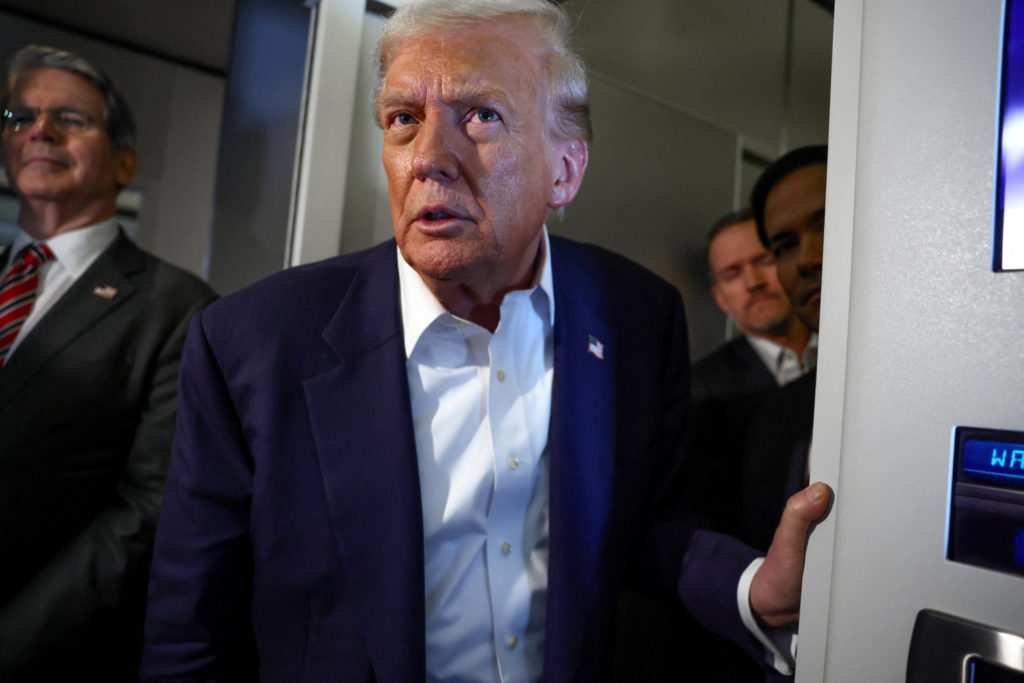Trump Administration Confronts Legal Challenges Over Federal Spending Cuts
President Trump's administration faces over 150 lawsuits from states and groups for attempting to cancel billions in federal spending, with courts frequently blocking these efforts.
Subscribe to unlock this story
We really don't like cutting you off, but you've reached your monthly limit. At just $5/month, subscriptions are how we keep this project going. Start your free 7-day trial today!
Get StartedHave an account? Sign in
Overview
- President Trump's administration has attempted to cancel billions of dollars in previously approved federal spending, leading to widespread legal opposition.
- Over 150 lawsuits have been filed by states, cities, and various organizations challenging the administration's efforts to unilaterally cut funding.
- Courts have blocked 66 out of 152 lawsuits, significantly hampering the administration's ability to cancel more federal funding during the shutdown.
- Legal experts highlight that no president has pursued such extensive unilateral budget cuts since Richard Nixon, whose similar attempts were also legally challenged.
- The administration is accused of ignoring the 1974 Impoundment Control Act by not reporting funding freezes to Congress, despite the Supreme Court's past support for White House funding cuts.
Report issue

Read both sides in 5 minutes each day
Analysis
Center-leaning sources frame this story by emphasizing the Trump administration's "robust assertion of executive authority" as a challenge to democratic principles. They highlight the numerous lawsuits and how courts have "mostly ruled against" the administration, drawing parallels to Richard Nixon's executive overreach. Editorial choices underscore the controversial nature and broad impact of these spending cuts.
Articles (3)
Center (1)
FAQ
The threatened programs include law enforcement grants, environmental protection initiatives, food assistance, special education services, clean drinking water initiatives, and infrastructure repairs. These cuts would impact essential services across numerous states, potentially harming vulnerable populations and weakening public safety and environmental safeguards[1].
Courts have frequently blocked the administration's efforts, issuing temporary injunctions and restraining orders that prevent immediate cuts. Judges have ruled, in some cases, that the administration lacks the constitutional authority to broadly pause or cancel funds that Congress has expressly appropriated, reinforcing the separation of powers principle[2].
States argue that the administration's actions violate the U.S. Constitution and federal law by infringing on Congress's power of the purse. They claim that the executive branch cannot unilaterally withhold or rescind funds appropriated by Congress, and that such actions breach the Impoundment Control Act, which requires reporting to Congress if funds are impounded.
Successful legal challenges have restored billions in federal funding, with California alone securing the continued flow of an estimated $168 billion through early litigation. Additional targeted lawsuits have protected $11.1 billion in grants, and have prompted federal agencies to reverse some funding freezes in response to legal action[3].
If the cuts are allowed to proceed, states could lose critical resources for law enforcement, education, environmental protection, and infrastructure, potentially harming public health, safety, and economic stability. Vulnerable communities, such as those reliant on food assistance or special education services, would be most affected. The broader precedent could also weaken congressional control over federal spending and disrupt the balance of power between branches of government.
History
- This story does not have any previous versions.
